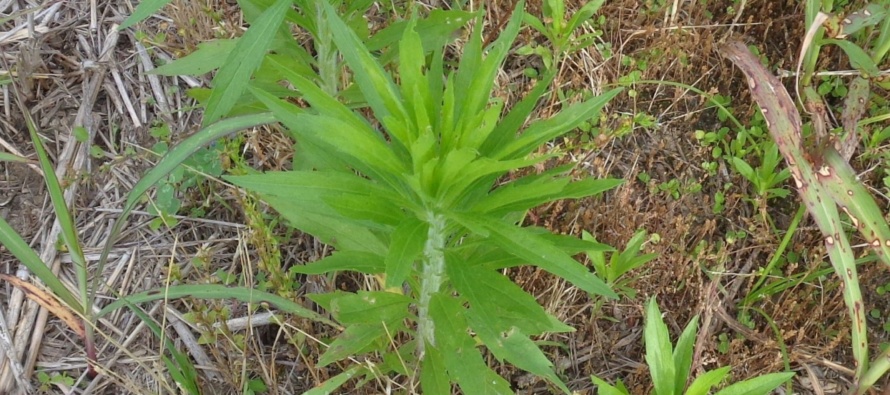Horseweed

Related Articles
- Calcium and Magnesium For Mississippi Crops 0
- March 11 Precision Agriculture Workshop 0
- Ground Speed Affects Spray Droplet Deposition 0
Latest Tweets
Horseweed
Weed Flora of Mississippi
Prepared by
Taghi Bararpour and Jason Bond
Family: Asteraceae or sunflower family (Aster family)
Genus: Conyza Species: canadensis
History: Horseweed (marestail) is native to North America but is probably much more widespread now than prior to European settlement. It occurs throughout southern Canada, the entire United States, Mexico, and much of Latin America. It is widely naturalized in Europe, temperate and tropical Asia, Australia, New Zealand, and southern Africa.
Life Cycle: Winter or summer annual
Special Characteristics: Horseweed is a favorite host for tarnished plant bugs, which are a major pest of cotton. Horseweed contains volatile oils, tannic acid, and gallic acid that may cause skin irritation in livestock and humans.
Roots: Taproots along with fibrous lateral roots.
Stems: Erect stem that can reach heights of 10 feet (3 m)
Leaves: Alternate, grow as a rosette
Flower: Many flower heads grow at the ends of branched stems, flower heads mature and expand into seed heads, which look somewhat similar to dandelion puffs.
Seeds / Fruit: Small, roughly 1/16 inch (1.5 mm) long, narrow, elliptical or oblong, slightly hairy, and attached to soft, dirty-white bristles. Fall-emerging plants 16 inches tall produced about 2,000 seeds whereas plants 5 feet tall produced about 230,000 seeds. Uncrowded plants on fallow ground produce about 200,000–400,000 seeds each.
Seedling: Cotyledons are oval to egg shaped, hairless to densely covered with short stiff hairs.
Interference: Cotton lint yield loss was 37 and 44% when horseweed competed to the 8th cotton node. It has been reported (1990) 50 to 90% yield reduction in soybean from full-season interference by horseweed.





Let me tell You a sad story ! There are no comments yet, but You can be first one to comment this article.
Write a comment